#jacobite rebellions
Explore tagged Tumblr posts
Text
Noooo little german boy don't go to Britain and become king because your mother was the next legitimate protestant heir and cause decades of bloody fighting because James II's son thinks that he has a stronger claim
#this doesn't deserve an english history tag#this doesn't deserve a scottish history tag#jacobite rebellions#jory.txt
29 notes
·
View notes
Text
trying to write this fic about Jamie Mccrimmon but I don't know enough about the areas around Culloden, especially in the 1740's, and I know it's massively inaccurate and I just have no idea how to make it better? Google maps can only do so much. Like what route would they take, what is the landscape, where would they hide, trying to travel away from the english soldiers? Urghhhhh Any book recommendations about culloden?
17 notes
·
View notes
Text
hey would any of you be interested in reading a chansaw fanfic about them falling in love, despite being members of clans on opposite sides of the Jacobite Rebellion of 1745?
#chansaw#heathers#heathers 1989#the jacobite rebellion of 1745#veronica sawyer#heather chandler#i might write it
20 notes
·
View notes
Text
No little german boy, don’t go to england and take the crown when James and Charles Stuart both have stronger claims to the throne!
“Oh Mein Gott Zees Is Ein Countree of Scottsfightton!”
#jacobite#jacobite rebellion#in honor of the coronation next weekend - DOWN WITH THE HANNOVER PRETENDERS#/for not being put on a watchlist reasons: this is a JOKE/#brithist#History#George I: the original little german boy#eurohist
73 notes
·
View notes
Text
In other news I’ve been listening to both Clanlands and The Clanlands Almanac so prepare for anything with Soap in it (cough selkie soap) to be nauseatingly Scottish
#the entire Jacobite rebellion and highland culture is enthralling#ironic that I’m not a fan of outlander#state of the knee brace
7 notes
·
View notes
Text
I am all over this online archive lately, which is a treasure trove of military art and maps from the 16th century through Waterloo. It's entirely prints and drawings, not paintings, but there are some lovely pieces and many lesser-known conflicts. (The War of 1812 collection is surprisingly comprehensive and focused on naval battles).
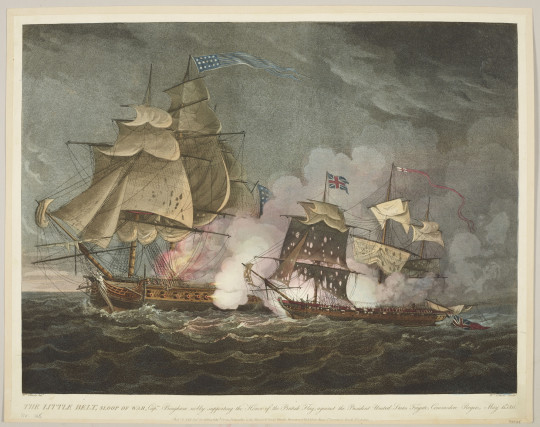
A view of the British sloop of war Little Belt, having been defeated in action with the American frigate President in the channel of Sandy Hook on 16 May 1811: print by William Elmes, 1811
#military history#age of sail#war of 1812#napoleonic wars#and many others#they have the 1745 jacobite rebellion too#although that one is only maps and not guys in tartans smooching (sorry mutuals)#george iii#maps#military art#naval history#it does remind one of the fact that the british have started a war with nearly every nation in history
25 notes
·
View notes
Note
Why did the Blackfyres keep attacking for decades, despite failure after failure? I guess they're modelled after the Jacobites, so why did the Jacobites keep attacking?
While there are some commonalities between the different Rebellions, I do think that a bunch of them were sui generis and others were strongly influenced by what had happened the previous Rebellion.
So for example, the Second Rebellion was motivated pretty strongly by a sense that Bloodraven and Aerys I had so badly mishandled the royal government that a Blackfyre Rebellion would develop something of a bandwagon effect as disaffected nobles heard that a Blackfyre had landed in Westeros and hatched a dragon egg, and perhaps even something of a populist uprising as people were finally able to vent their frustrations about plagues, droughts, famine, and a royal government that did not care.
The Third Rebellion was motivated by a sense that they would not repeat the mistakes of the Second, that while the Targaryen regime was still a bit shaky, that Bittersteel and the Golden Company would cross the Narrow Sea this time so that the rising could not be easily squashed, and that they would march behind a Blackfyre king who had been given the sword so that no one who had fought for Daemon would forget that here was the rightful king. And I think this one was probably the high-water mark for the Blackfyres.
The Fourth was largely motivated by the conclusion of the Third - namely, the murder of Haegon Blackfyre after he had surrendered honorably. This violation of the laws of chivalry and kinslaying, when combined with Bloodraven's equally treacherous murder of Aenys Blackfyre after he'd been given a promise of safe conduct, created a strong sense of grievance, that House Targaryen in the person of Bloodraven was a house of dishonorable murderers who held power only because they assassinated Daemon's children and them himself at the Weeping Ridge, then murdered Haegon, then murdered Aenys.
Whereas the War of Ninepenny Kings seems to have been entirely opportunistic.
As for the Jacobites, it was really motivated by religion (Jacobites tended to be Catholic or quasi-Catholic High Church Anglicans, while William & Mary, Queen Anne, and the Hanoverians were all Protestant), belief in divinely-sanctioned monarchy instead of the corruption of Parliament, and a nationalist desire among the Irish and Scots to get out from under the thumb of the British Empire especially following the Act of Union in Scotland and the Protestant Ascendency in Ireland.
23 notes
·
View notes
Text
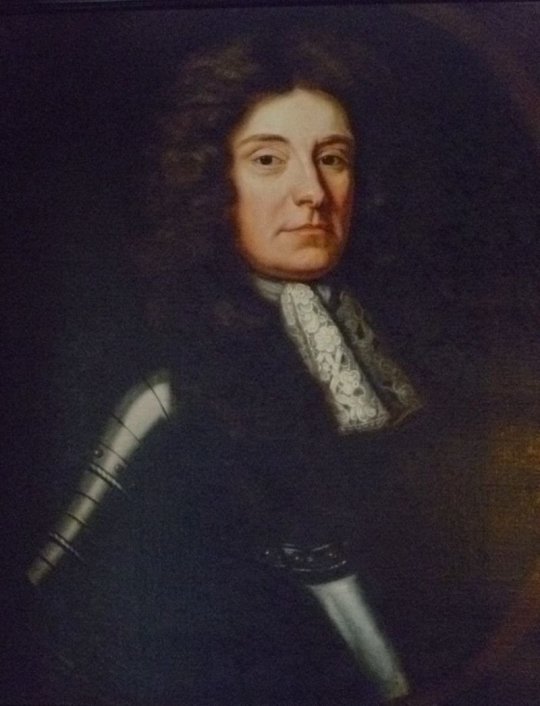
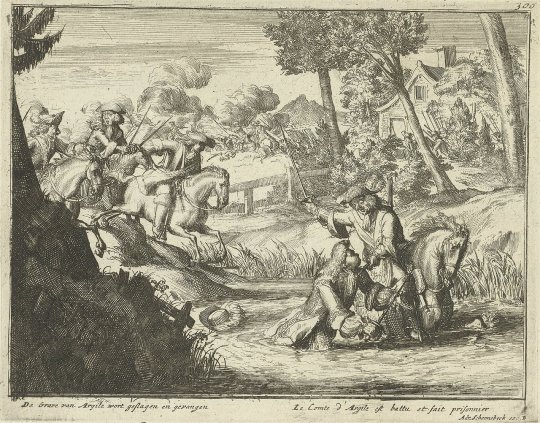
On May 20th 1685 the Earl of Argyll sailed from Holland to Campbeltown with 300 men in an attempted uprising.
We hear about the Jacobite Uprisings on a regular basis, mainly the 45, but very little about the attempts to usurp the Stuarts from the throne, this was a time of political and religious turmoil, and as usual at the heart of it was a Campbell.
Argyll’s Rising or Argyll’s Rebellion was an a attempt by a group of largely Scottish exiles, led by Archibald Campbell, 9th Earl of Argyll, to overthrow King James II and VII. It took place shortly before and in support of the English led, Monmouth Rebellion, led by James Scott, 1st Duke of Monmouth.
Argyll’s Rising was intended to tie down Royal forces in Scotland while Monmouth’s army marched on London. Both rebellions were backed by Protestants opposed to the kingship of James, a Roman Catholic.
Argyll, the chief of Clan Campbell, had hoped to raise several thousand men amongst his followers, while it was expected that many Presbyterians in southern Scotland would join the rebels.
Argyll sailed from Holland on on this day in 1685 with around 300 men, but on landing in Scotland attracted relatively few volunteers. Hampered by Argyll’s inexperience as a commander, disagreements amongst the other leaders, and by an opposing force under the Marquess of Atholl, the rebels began to disperse in mid June after an abortive invasion of Lowland Scotland. Most of their leaders were captured, including Argyll, who was executed on 30th June, more of that then.
The pics are of Campbell and a depiction of his capture.
7 notes
·
View notes
Text
10th June
White Rose Day
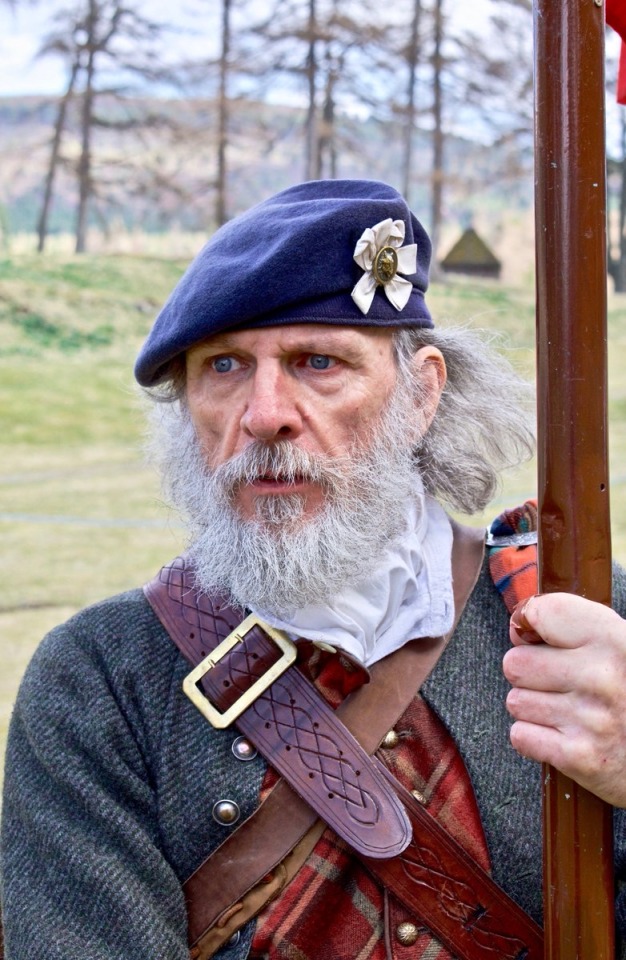
Jacobite wearing the White Cockade. Source: Braemar Media Twitter account
Today is White Rose Day, so named in commemoration of the failed Jacobite rebellions in Scotland against the Hanoverian monarchy. I0th June is the birthday of James Edward Stuart, who launched his unsuccessful attempt to oust King George I from the throne of the United Kingdom in 1718. His son, the glamorous Charles Edward Stuart, also known as Bonnie Prince Charlie, during the Jacobite rebellion he led in 1745, allegedly picked a white rose at Fassern near Loch Eil and wore it as a cockade. His followers then did likewise, many Highlanders sporting the White Cockade at the Battle of Culloden, where the Jacobite cause was finally crushed by Royal troops.
On this day the intriguing traditional Snail Creep dance takes place at Roche in Cornwall. A band plays and the dancers wind themselves in ever decreasing circles, forming a coil of dancing bodies until the rows resemble a human snail’s shell, before they uncoil and begin the dance again. Many folklore claims have been made for the Snail Creep, including that it represents ancient snake worship, or that it has its origins in Neolithic maze dances, attested to by prehistoric cave and wall paintings. Others say it represents tree worship with the dancers originally encircling a sacred oak. It may be none of the above, but the dance’s very strangeness does hint at a pre-Christian origin.
3 notes
·
View notes
Text
Ill-Fated, Scandalous Lovers: Sophia Dorothea and the Swedish Count
The tale of Sophia Dorothea of Celle and her handsome, dashing lover, the Swedish Count Philip Christoph von Königsmarck, is tragic, but also rather foolish, because the lovers were so reckless that they brought about their own doom. It almost seems to me that the heedless teens Romeo and Juliet went about their wooing with more dignity and more sober awareness of the threats they faced than…
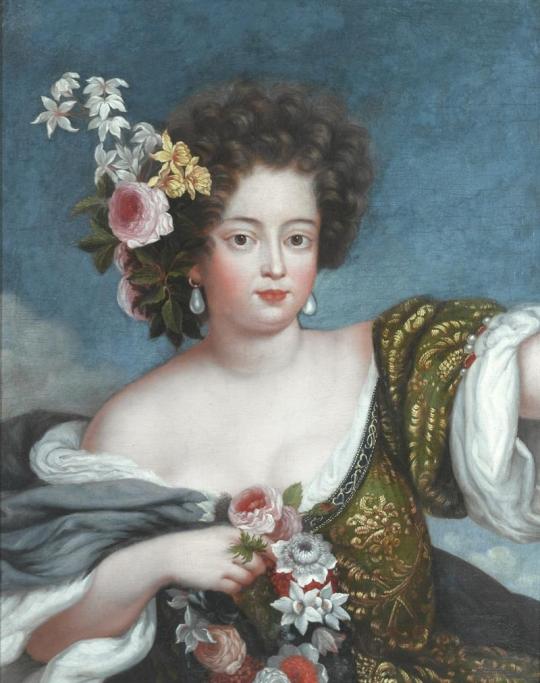
View On WordPress
#British History#Count Philip Christoph von Königsmarck#Elephant and Maypole#George I#House of Hanover#Imprisonment#Jacobite Rebellion#King of England#Murder#Royal Divorce#Royal Scandal#Sophia Dorothea of Celle
3 notes
·
View notes
Text
Okay, according to Wikipedia the song might have been about Bonnie prince Charlie and the jacobite rebellion in Scotland.
Which tells us some interesting things.
1. My Bonnie is a catholic dude.
2. The ocean is the Atlantic
3. The sea is the Mediterranean.
4. These are sailing instructions, not a geography location. But to be fair, "my Bonnie lies over the English channel and france and the alps" just doent have the same feeling.
5. But if you took a boat from either Edinburgh or Inverness to Calias, France (to avoide England) then walked to Rome, Italy to find your Bonnie. You could have walked 500 miles and 500 more* just to fall down at his door.
*The Google walking instruction from Calais France to Rome, Italy are actually 1577km which comes out to 979 miles so you have an extra 21 miles for getting lost and visiting shines and bar crawls.
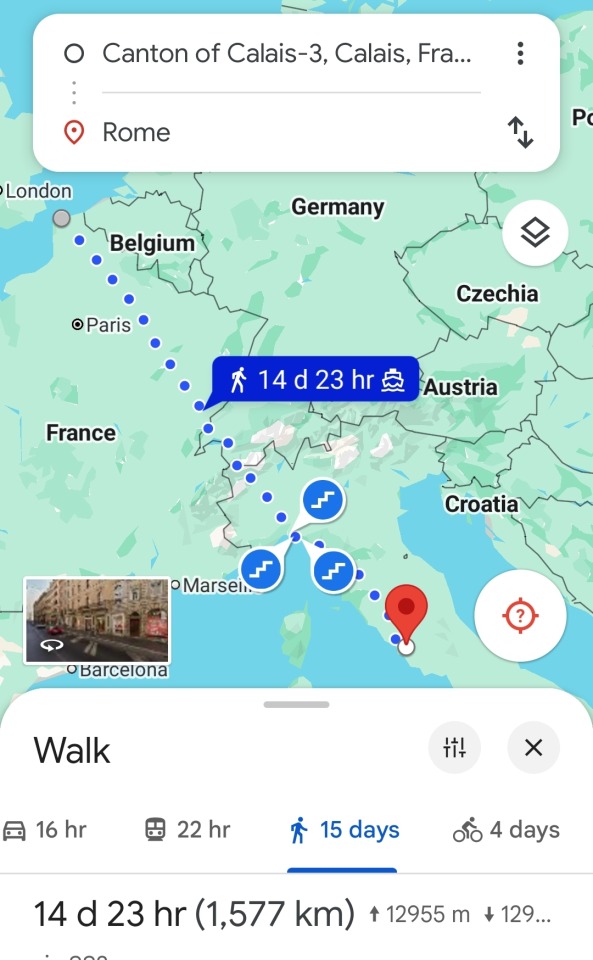
“my bonnie lies over the ocean, my bonnie lies over the sea,”
are we talking about the same body of water here, which is weird, or different bodies of water, which is even weirder
89K notes
·
View notes
Text
CARRUTHERS AND THE JACOBITE REBELLION - CLAN CARRUTHERS CCIS
CARRUTHERS AND THE JACOBITE REBELLION 1745 – 1746 The Rebellion The 1715 and 1745 insurrections were certainly not an attempt to put Prince Charles Edward Stewart on the throne of the United Kingdom of Scotland, England and (at that time)Ireland. His father styled James VIII of Scotland and III of England was still alive. Charles Edward Stewart was fighting for his father throne, although…
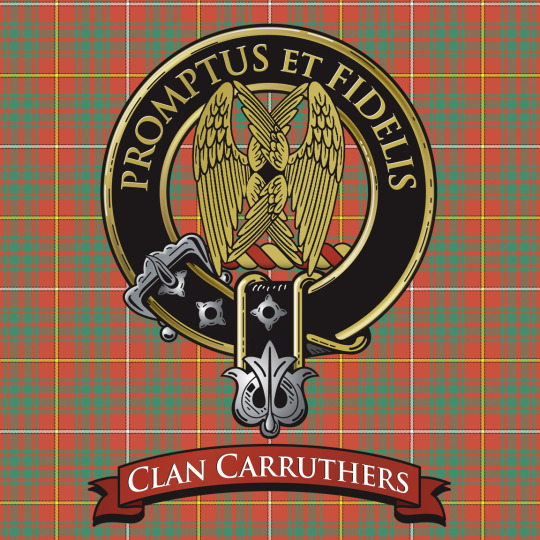
View On WordPress
#Carruthers#Carruthers Clan#Carruthers history#Carruthers in the Military#Clan Carruthers#cullodeen#CULLODEN#JACOBITES#moor#prince charles edward stewart#REBELLION
0 notes
Text
green cliffs: - lessons in mortality. chapter one
highlander!soap x fem!reader. cw attempted sexual assault. read on ao3 here
On the same patch of land that you once took your first step, you are dragged out of your home by your hair.
There are things of little consequence: the blinding beam of the sun, how its heat doesn't reach you, snatched up by the snapping wind. The peeling paint of your broken fence, the pitchfork that has been abandoned in a bale of hay instead of with the rest of the tools in the barn.
You focus on this, the bite of the cold on your cheeks instead of the nails that are digging into your scalp. Easier to try and distance yourself from the fear that is gaping in your stomach, instead wondering if it was you or your brother who left that pitchfork out like that. You decide that it must have been your brother, he had been the one in the rush to get to the river to catch the ‘better’ fish this morning.
There are three strange men around you. You don’t know any of their names. You had seen them in the distance, the stark red of their coats along a distant hill, barely even a day prior. Your village had seemed to suck in a breath, air stilling with their approach. Now, the wind howls, the noisy exhale after that tense beat.
Trouble, your brother had warned you. Told you to stay in the house as much as you could. Tend the crops, feed the animals and keep your eyes down. He would go out, speak with your neighbours to get information on who these men were and what they wanted.
And you had done what you were told, had darted across to the barn, to the coop. Like a horse jumping at the sight of a snake before it even coils to snap.
It didn’t matter anyway. A spooked horse gathers more attention than a calm one. Your brother is sitting by still waters somewhere else, and you are here, gritting your teeth at the sting of your hair being ripped out by clumsy fingers.
Seemingly bored of dragging you, you are shoved to the ground, collapsing in a pile of skirts in the dirt. The men guffaw at you. They’ve clearly been drinking, the stench of whiskey is foul, and one of them still holds a bottle of it. Swings it around and you feel some of it catch the end of your dress. The laughs have a bitter edge to it. They’re angry, you realise, a new spike of fear shooting up your spine. You have just met these men, but they are treating you like you have wronged them in the past. Here to exact their revenge.
Soldiers, likely. One of them is still holding their bayonet, the other with a pistol slung around their waist. You don’t know how high-ranking these soldiers are, you don’t know if that would make a difference in how they are going to treat you. Worse, likely. Not even a month past and one of your neighbours had been strung up to the post, back bloodied with a whip until he collapsed. The punishment for not welcoming God’s own into your home, apparently.
Usually the English presence in your village is more official. A battalion, passing through and making sure that everyone is minding their own. There had been another Jacobite uprising, somewhere to the west of your village. Scottish men gathering to try and overthrow King George, reinstate the Catholic Stuarts. It had failed, but English law recently had become a lot more permanent, tangible in light of this rebellion.
These may be soldiers on your land, but they were operating as men. English law placed to the side, it’s overseeing eye shut for just long enough for what they were planning for you.
You are pulled up, arms yanked behind your back. Held in place by the first soldier while the other two prowl around your home.
“You know, I'm sick of you stuck-up cunts,” the first soldier hisses in your ear. There’s a twist in the muscle of your shoulder which makes you whimper. “You'd bend over for your sheep before you would us. I bet you have as well.” You can see his dark hair in the corner of your eye, smell the whiskey on his breath.
“Oh, come on, Grahams,” the second interjects, reaching over to catch your chin in his clammy hand. “She looks like a good girl. I bet you haven’t even been touched. Am I right?” His thumb pushes on your lower lip, his own mouth parting beneath the heavy curl of his pale moustache. Salivating, the way a rabid dog does before you put it down.
You stay silent. Feel his skin on yours, how he pulls your lip down. The parting of where you were and where he drags you down. Feel that ugly gap of space, an inch but it feels like a mile.
“Alone in that house?” the third asks, not even sparing you a glance. He’s pouring his drink over the edge of your field, just outside the second fence. The border between your yard and the crop you and your brother had laid down, scarcely a few weeks before. The third soldier has small eyes, and a pig nose, turns to give you a horrible, hating look. “Bet she’s had the entire village between her legs,” he sneers.
The first soldier distracts you, breath polluting you as he huffs a laugh. Tightens his arms around the lock of yours and ignores you as you grunt in pain. "Well, I’m sure that she wouldn’t mind the King’s own men from taking what they are owed, yes?”
The third man, apparently done with talking, throws the rest of his bottle over your fence and strikes a match. The catch of fire always surprises you. The match is suspended in the air for a flicker of a moment before it connects to the pool of liquor. A blink, and the fire roars, summoned into life and it eats all of the crop that you and your brother had laid on that once tilled field.
The memory of you and your brother, on your hands and knees as you planted that crop. The acceptance of exhaustion that comes with physical activity when you know it must be done and so you do it. Body connected to mind, an idea and then the yield.
Impossible to reconcile what had taken hours to do, lit up within a second. The fire branches across everything, almost licking the third soldier himself. Everything swallowed up, a horrible demon, brought by these men, a senseless cruelty that you can barely comprehend.
You howl, a wounded animal sound, lunging forward and then yanked back immediately. Everything is separate, suffocated by sensation. There is only the connection between the fire and your eyes, the conclusion that your brother is going to have to bow in that dirt again.
You shriek again, when you are stopped from preventing this, arms protesting in the twist that the first soldier forces them into. Told to stop your squealing. The second soldier steps back into your eye-line and grins down at you. Yellow teeth, dark eyes. Another demon on your land, seeking retribution in something that you have not even committed.
His mouth moves, but you barely hear it, blood rushing in your ears. Your face is hot, molten with tears. Brain and body disconnected. The socket of your shoulder is boiling, every yank pulling a tense groan from between your clenched teeth. You know that you are going to hurt yourself if you keep struggling, or maybe one of these men are going to hurt you. But you keep pulling, huffing with fruitless effort.
The second soldier reaches down, fingers digging into the collar of your dress. His fingers cold against the hot flush that has spread across your chest. A tear in the cotton cloth that covers most of your clavicle. Another shriek, ripping up your throat and into his face. He barely flinches. You are a cat with its tail caught, it doesn’t matter how sharp your teeth are anymore.
The first soldier with your hair in his teeth. The second with his hands groping down your chest. The third man, kicking your fence to get it to buckle and catch in the flames as well. Paralysis like a fist around the base of your spine. A yell that starts in the bottom of your lungs, builds until you are almost sick with the force of it.
Another yell, one that does not fully register until the soldiers take notice of it.
"What on -" the first soldier starts to say, before the rest is lost in a strangled noise. The second soldier steps out of your vision and you see what is stopping him.
Your father was no soldier, although he had been when he had to be, god rest his soul. He used to tell you about the true highlanders, the real soldiers and the swords that were as broad as they were, and how they would swing them as if they were an extension of their own arm.
It sounded like folklore. Mythology, until you see the swing of that broadsword, splitting the third soldier at the waist like the crack of an egg.
You barely have time to catch sight of the fourth man before you are thrown to the ground again, dirt catching on your palms and digging in.
It feels generous to call it a fight. There is a brief tussle between the new man and the two soldiers that had been holding you prone, before they are brought to heel. Blood seeping into the dirt. Half of the second soldier’s face thuds to the ground, his moustache halved. He stares sightlessly up at the sky, half an expression stuck and immortalised.
You lie in the dirt, watch as your tormentors are silenced, lives ended and left to pool in the soil that you used to dance across when you were younger. It is entirely unfair, the three men that were able to drag you around like a ragdoll, cut into like slabs of cheese.
It’s breathtaking, watching this man save you like it is the easiest thing in the world. He finally stills, the first soldier lying limp on his knees before he is kicked aside. You hysterically wonder if that is what would have been done to you, if these three Englishmen had gotten their way. A passage of time interrupted, snipped like the threads of fate. Time redirected.
You stare up at him, barely able to connect that your arms are your own now, even though you had been wrestling for them to be this entire time.
Your saviour, a bloody mess on his kilt and three dead men around him.
"Thank you," you manage. Voice crackling as you form full words now. The stench of gore is another presence in the yard with you. Thick, you resist the urge to gag as it seems to catch in your teeth as you inhale noisily through your mouth.
The man who saves you is silent, breath heaving out of him. He is massive, with dark hair that is pushed back out of his face. A light beard and red in his kilt. Red everywhere, actually. Staining the white of his cotton shirt beneath the crossover of his kilt, staining his skin. His broadsword is almost the same height as him, almost as wide. Metal catching the sun, glowing red as it drips blood.
It takes the man to stumble back to force you into action. You force yourself up, staggering towards him. You reach the centre of his chest, his breadth suffocating you, encompassing. You catch his bicep to right him, the equivalent of smacking your hand against stone. Now that you are standing chest to chest with him, you realise if he were to fall, you would not be able to catch him.
"Are you alright?" You ask, staring up at him. The blood on his face doesn't seem to be his, for the most part. There is a cut across his brow, leaking a lazy trail of blood down his temple and you almost reach up to touch it without thinking, before you catch yourself.
His eyes are blue. The sky brought down to you.
You almost laugh, delirious. Self-conscious under his rapt gaze. You tilt your head and catch sight of the fire again. As if other sensations had been halted under this man’s gaze, you are brought back to the present with the crackle of fire. You curse under your breath, stepping out of the pull surrounding this man, darting away to get a bucket to extinguish the flames.
You feel the ghost of a hand across your back before you are gone, furiously pumping the handle of the well and tossing the water across to the fire. It takes a few journeys, something that has your hands fumbling as you try to work faster.
The man is there, pulling the bucket away from you even as you try to stop him. He is able to swing the water further, catching more of the flames. His gait is longer than yours, but you notice that he seems to be stumbling as he is putting weight on his right leg.
After you pass him two more full buckets of water, the fire is finally put out. You take stock of the blackened field. All of it razed, deader than the men who are still sinking into the dirt a few feet away from you. You swallow harshly, angry tears pricking at your eyes. It will take a month, longer even, to fix this. You can imagine the devastation on your brother’s face when he sees this. Resist the urge to turn to the corpses and give them a few good kicks.
You want to give into the lump in your throat and cry over this, but the man fills you with purpose. You roughly swipe at your face before you face him, catching him already watching you. “Your leg - is it alright?” You ask, trying to keep the burned field out of sight. Better to focus on what can immediately be fixed.
The man stares at you for a beat too long. Almost as if waiting for you to speak again before he does. "One of the bastards caught me in the leg," he says. His accent is thick, deep in a way that has you flushing. He tilts his leg, lifting his kilt enough for you to see the gash on the back of his calf. The flesh looks torn open, which makes you wince.
"I can patch that up," you offer, grateful at the opportunity to take your mind off of the events of the past hour. You step closer, hands hovering, unsure if he should be walking. "My brother cut his arm on a scythe once, wrist to elbow, and I managed to stitch that up,” you add, even though the man doesn’t seem to care about your past experience with wound tending.
"You the village nurse then?" the man asks, reaching over to drape his arm over your shoulder. There is a moment of his weight pressed into you that almost makes your knees buckle before it is lifted. His hand stays though, warm on your opposite shoulder. He seems to be guiding you into your home more than you are. He is a hot line along your side, hip to hip. The sway as you acclimate to his walk, sturdier on your right leg as if to compensate for his.
“Hardly,” you manage to respond, kicking the door open for him to get inside. “My brother is just clumsy.”
You set him on the chair in your kitchen, bustling around for some cloth and a needle and thread. Your kitchen is like a picture in a book, just how it was when you woke up this morning. Time has not moved here, your mug is still by the sink. Your brother’s boots by the door where he had forgotten them this morning. Life before the fallout, perfectly preserved.
“It’ll look ugly, but it’ll do the job,” you warn, tossing a cushion on the floor to kneel on, gesturing for him to elevate his foot on the other chair.
“I trust you to make my leg as handsome as it was before,” he says, a smile that slips from his mouth when you come back to his side. You kneel down, a wet flannel in your hand that you cover the wound with, wanting to the extent of the damage beneath the aftermath that covers it.
You glance up at him, finding him watching you. Eyes dark now, water before a storm. You give him your name, suddenly realising that you haven't yet. Admonish yourself for being rude.
He breathes it back, like he wants to hold it in his mouth for a moment. “John,” he replies after another pause. “I get called Johnny.”
“Am I allowed to call you Johnny?” You ask, turning back to his leg. You catch sight of his chest stuttering over a breath. You tuck your hair behind your ear, frowning to yourself. You know if your brother were here, then you would not be speaking to this man so casually. That knowledge makes you feel like you are doing something inappropriate. Something to be ‘caught’ doing. Extra dash of sugar before the whip of the belt across your backside.
“Absolutely, angel. Well, dependent on the work you make of my leg,” he adds, tone musing. He seems amused by you, mouth smiling even as his eyes stay that dark colour. Trouble, your brother had described the soldiers. You aren’t so certain he wouldn’t describe Johnny in the same way.
You resolve yourself to your work. It’s not a bad gash, when most of the blood is wiped away. One of the soldiers must’ve stabbed it in, and then pulled it to the side, splitting the flesh. You wonder how he was able to stand on it, nevermind help you with the fire. You murmur a warning before you stab the needle in, threading the wound closed. A thin layer of poultice along the loose white cloth you have, an attempt to prevent any swelling before you wrap this around the wound. Tie the ends. The beginning of a thank you for what Johnny has done for you. His blood stains your hands, sticky into the crevices of your palms.
You squeeze the red out of the flannel and stand, roles reversed. He looks up at you, gaze reverent in a way that makes you faintly embarrassed. “The cut on your brow doesn't seem as bad,” you murmur, half-excusing yourself. You’re not doing anything untoward, but you feel the need to pre-emptively explain yourself.
You wipe the blood on his face away, other hand hovering uncertainly, before you cup his chin. Hold him in place as you clean him up. It's something that you think would be normal, but feels outrageously intimate with how hot his gaze is on your face. Swallow and watch as his eyes drop to observe your throat move.
You avoid his eye, difficult when you can see that flash of blue darting around. You feel swallowed up by it. His attention feels like the sun has finally reached you, reaching through the wind to land on your skin. Scalding where his eyes land. You’re suddenly aware of the rip in your bodice, how it looks like you are bending over to show him the view down your chest. You snap up straight when you realise that he is looking.
You’re being ridiculous, you decide. This is the man who saved you from those horrible soldiers. A fate worse than death, most likely. Raped, murdered and burned most likely.
The cut on Johnny’s brow as stopped bleeding. “I think you’ll live,” you pronounce, voice falling flat at the end.
Another gap of quiet. Standing over a man who saved you, his blood on your hands. Three dead men in your yard. The burned crops, that smell wafting in, ruin and death.
“You live here alone?” He asks, accent catching on the ‘o’ sounds.
“No, my brother…he's away, fishing,” you explain.
Johnny barely seems to hear you, hand on your wrist. Thumb on your pulse, like he's listening to more than your words. “There may be more soldiers,” he says, gaze dragging away from you to the window. Darting back again as if he can barely stand to not be looking at you. “We have to go.”
You stammer, something in your spine locking at the idea of leaving your home. “I can't, no, this is my home - my brother - Ian - he’ll be -”
Johnny stands, a wall of muscle in front of you. The size of him silencing you. “There are English men dead on your land,” Johnny tells you, fierce suddenly. The snap of teeth. “Now, they may not believe that a sweet thing like you could do this, but they’ll make an example of you anyway.” His words blow the air out of your lungs, a shudder in the shape of a breath. You think about what he’s saying. You, on that post with your back whipped until everyone can see beneath your skin. Saved from the lawless and delivered to the law, the punishment eerily similar.
You shiver, fear worming through you. The scowl on his face smooths out, and he reaches up and cups your face. Sticky with gore, you can feel the print of hands left on your cheeks. “We have to go,” he repeats, firm. The full force of his will is something to bow to.
Your shoulder twinges, familiar with that sensation of being caught and forced into position. You twist your mouth, that ignored lump in your throat making itself known again. You blink up at Johnny, blood in the light beard across his face. The blood of the men who hurt you. Offering to save you. Again.
Your saviour is a stranger in your kitchen, and when you murmur your assent, he smiles like a wolf.
#johnny soap mactavish x reader#johnny mactavish x reader#johnny soap mactavish#johnny mactavish#cod x reader#cod#call of duty#call of duty x reader#nic writes#highlander au#the brainrot i got from one art work....oh years of psychic damage i fear#anyway#unsure how long this shall be at this stage. but will keep u all posted HAH#lemme know what you think !
321 notes
·
View notes
Text
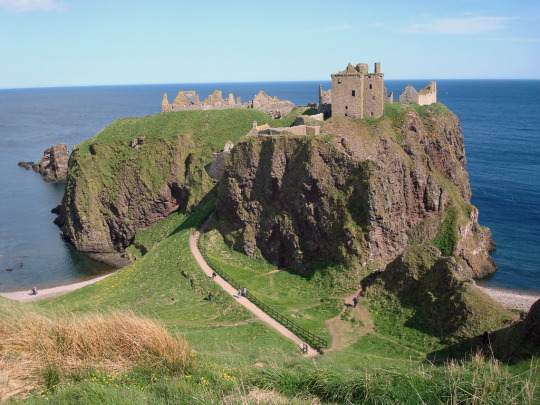
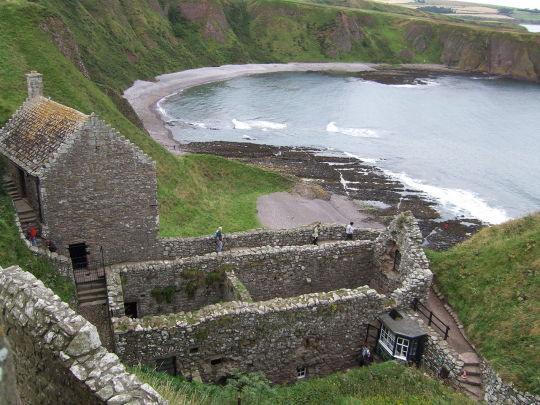
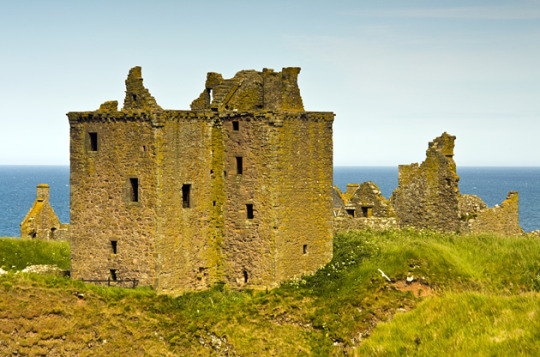
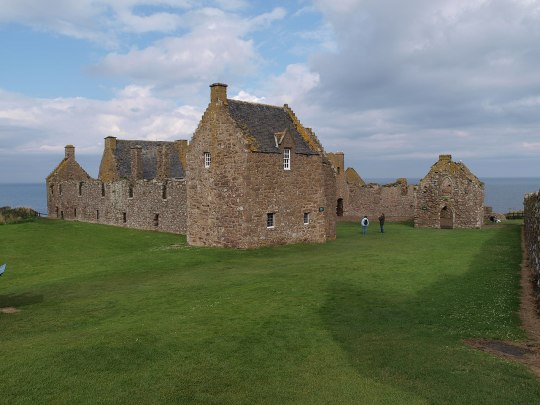
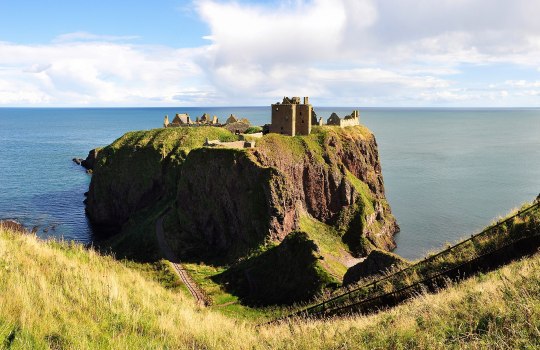
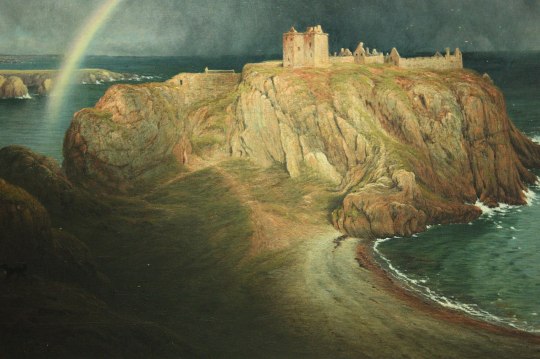
Dunnottar Castle, "fort on the shelving slope" is a ruined medieval fortress located upon a rocky headland on the north-eastern coast of Scotland, about 2 miles (3 kilometers) south of Stonehaven. The surviving buildings are largely of the 15th and 16th centuries, but the site is believed to have been fortified in the Early Middle Ages. Dunnottar has played a prominent role in the history of Scotland through to the 18th-century Jacobite risings because of its strategic location and defensive strength.
Dunnottar is best known as the place where the Honours of Scotland, the Scottish crown jewels, were hidden from Oliver Cromwell's invading army in the 17th century. The property of the Keiths from the 14th century, and the seat of the Earl Marischal, Dunnottar declined after the last Earl forfeited his titles by taking part in the Jacobite rebellion of 1715. The castle was restored in the 20th century and is now open to the public.
The ruins of the castle are spread over 1.4 hectares (3+1⁄2 acres), surrounded by steep cliffs that drop to the North Sea, 160 feet (50 meters) below. A narrow strip of land joins the headland to the mainland, along which a steep path leads up to the gatehouse. The various buildings within the castle include the 14th-century tower house as well as the 16th-century palace.
(source)
618 notes
·
View notes
Text
Fun fact about that first one, it's more like:
-It's A Shame I Will Never Get To See My Wife Or Favourite Lake Ever Again Because I Am Dead (But At Least The Ghost Road Is Quicker Than Walking)
im putting together a couple of scottish folk mixes bc that’s what i do and im honestly curious if anyone in my country has ever been unequivocally happy about anything ever
#Loch Lomond is a great song and I love it but it's uh#it's 100% about dying away from home#the Low Road is the passage of the spirit through the underworld back to Scotland before moving on#old folk belief about the souls of Scots returning to Scotland after they die and all that#but yeah that's why it's all ''me and my true love shall never meet again'' because the singer has carked it#I only found out what it was actually about a few years back and wow I woiuld not have guessed that#I think it's specifically about two people imprisoned in Carlisle Castle during the Jacobite rebellions#one of whom is set free and takes the ''high road'' home and one who is hanged and takes the ''low road''#folk songs
140K notes
·
View notes
Text
The aromantics (rightfully) complaining about the overstateration of modern love songs should check out Celtic folk. Every song I thought was about love was actually about the Jacobite rebellion
#from my own little galaxy world#aromantic#aro#aspec#arospec#lgbtq#folk music#celtic folk music#Celtic folk
31 notes
·
View notes